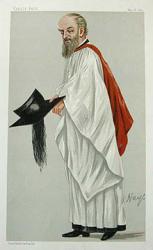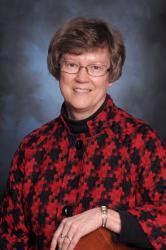1540 - 1591 Person Name: C. Melissander, (Bienemann), 1540-1591 Scripture: Psalm 31:6 Author of "Herr! wie du willt, so schicks mit mir" in Deutsches Gesangbuch für die Evangelisch-Luterische Kirche in den Vereinigten Staaten Bienemann, Caspar, son of Conrad Bienemann, a burgess of Nürnberg, was born at Nürnberg, Jan. 3, 1540. After the completion of his studies at Jena and Tubingen, he was sent by the Emperor Maximilian II. with an embassy to Greece as interpreter. In Greece he assumed the name of Melissander (a translation into Greek of his German name), by which he is frequently known. After his return he was appointed Professor at Lauingen, Bavaria, and then Abt at Bahr (Lahr?), and General Superintendent of Pfalz Neuburg; but on the outbreak of the Synergistic Controversy he had to resign his post. In 1571 he received from the University of Jena the degree of D.D., and in the same year was appointed, by Duke Johann Wilheim, of Suchsen Weimar, tutor to the Crown Prince Friedrich Wilheim. But when on the death of the Duke, in 1573, the Elector August, of Saxony, assumed the Regency, the Calvinistic court party gained the ascendancy, and succeeded in displacing Bienemann and other Lutheran pastors in the Duchy. Finally, in 1578, he was appointed pastor and General Superintendent at Altenburg, and d. there Sept. 12, 1591 (Koch, ii. 248-252; Allgemeine Deutsche Biographie, ii. 626). One of his hymns has passed into English.
Herr wie du willt, so schicks mit mir. [Resignation.] Written in 1574, while he was tutor to the children of Duke Johann Wilheim of Sachsen Weimar, in expectation of a coming pestilence. He taught it as a prayer to his pupil the Princess Maria, then three years old, the initial letters of the three stanzas (H. Z. S.) forming an acrostic on her title, Hertzogin zu Sachsen. The Princess afterwards adopted as her motto the words "Herr wie du willt,*' and this motto forms the refrain of "Jesus, Jesus, nichts als Jesus," the best known hymn of the Countess Ludamilia Elizabeth of Schwarzburg-Rudolstadt (q. v.), (see Koch, viii. 370-371). This hymn "Herr wie" was first published in B.'s Betbüchlein, Leipzig, 1582, in 3 stanzas of 7 lines, marked as C. Meliss D. 1574, with the title, "Motto and daily prayer of the illustrious and noble Princess and Lady, Lady Maria, by birth, Duchess of Saxony, Landgravine of Thuringia and Margravine of Meissen." Thence in Wackernagel, iv. p. 714. Included in the Greifswald Gesang-Buch. 1597, and others, and in the Unverfälschter Leidersegen, 1851, No. 578. The translations in common use are:—
1. Lord, as Thou wilt, whilst Thou my heart, good and full, by A. T. Russell, as No. 195 in his Psalms & Hymns, 1851.
2. Lord, as Thou wilt, deal Thou with me, in full, by E. Cronenwett, as No. 409 in the Ohio Lutheran Hymnal, 1880. Another translation is:—
"Lord, as Thou wilt, so do with me," by Dr. G. Walker, I860, p. 53. [Rev. James Mearns, M.A.]
-- John Julian, Dictionary of Hymnology (1907)
Caspar Bienemann


 My Starred Hymns
My Starred Hymns








